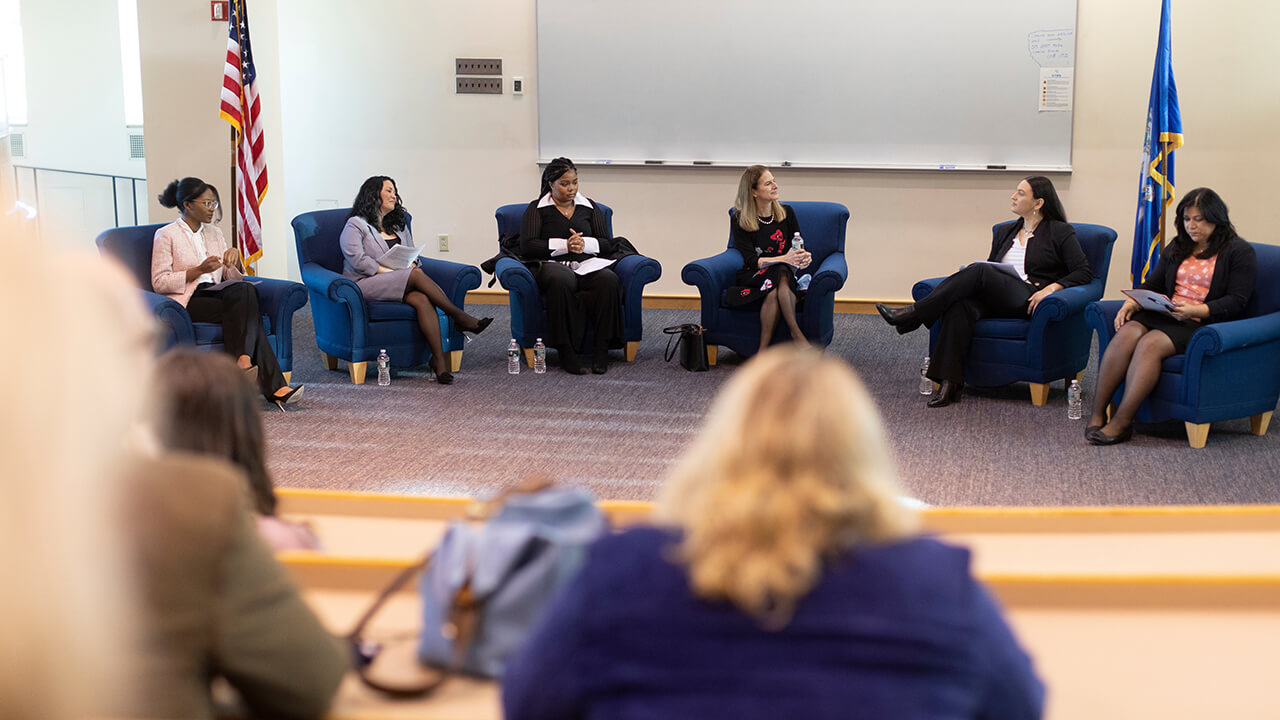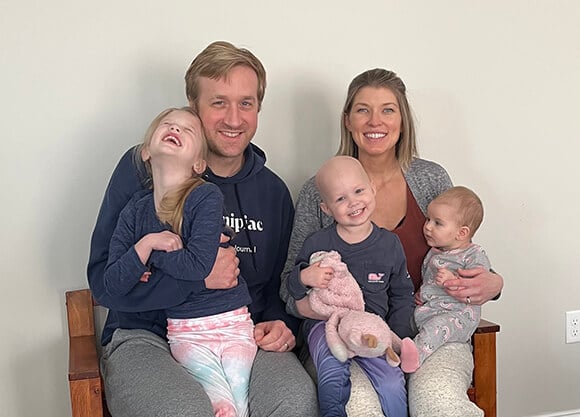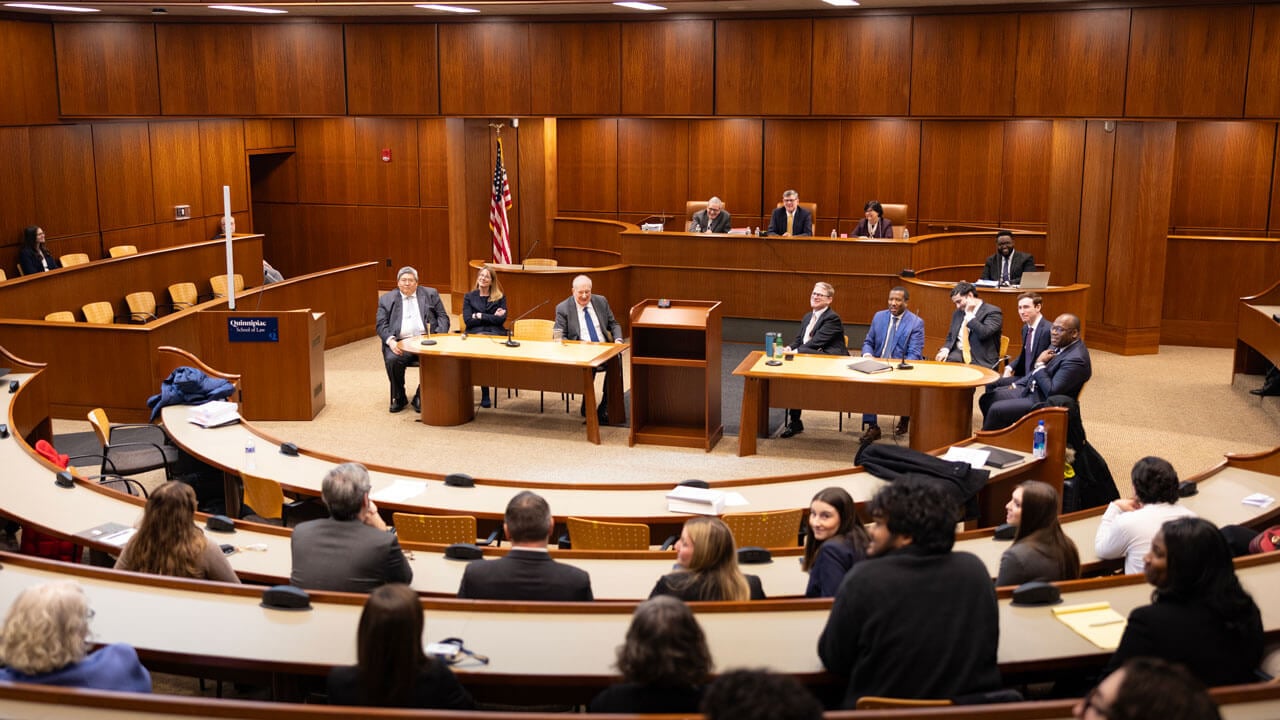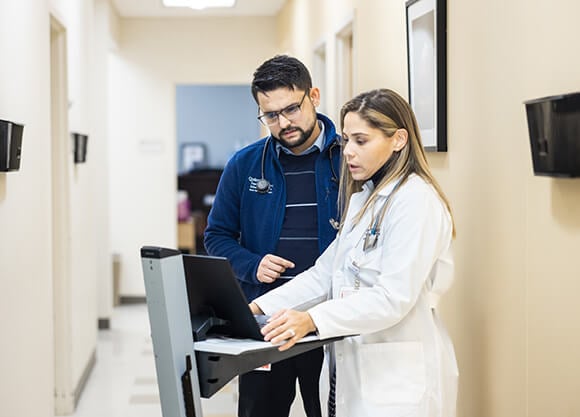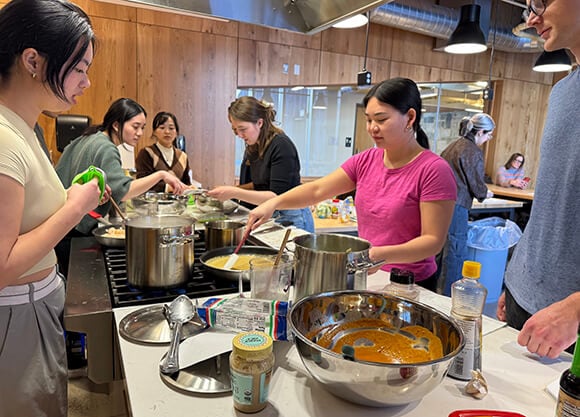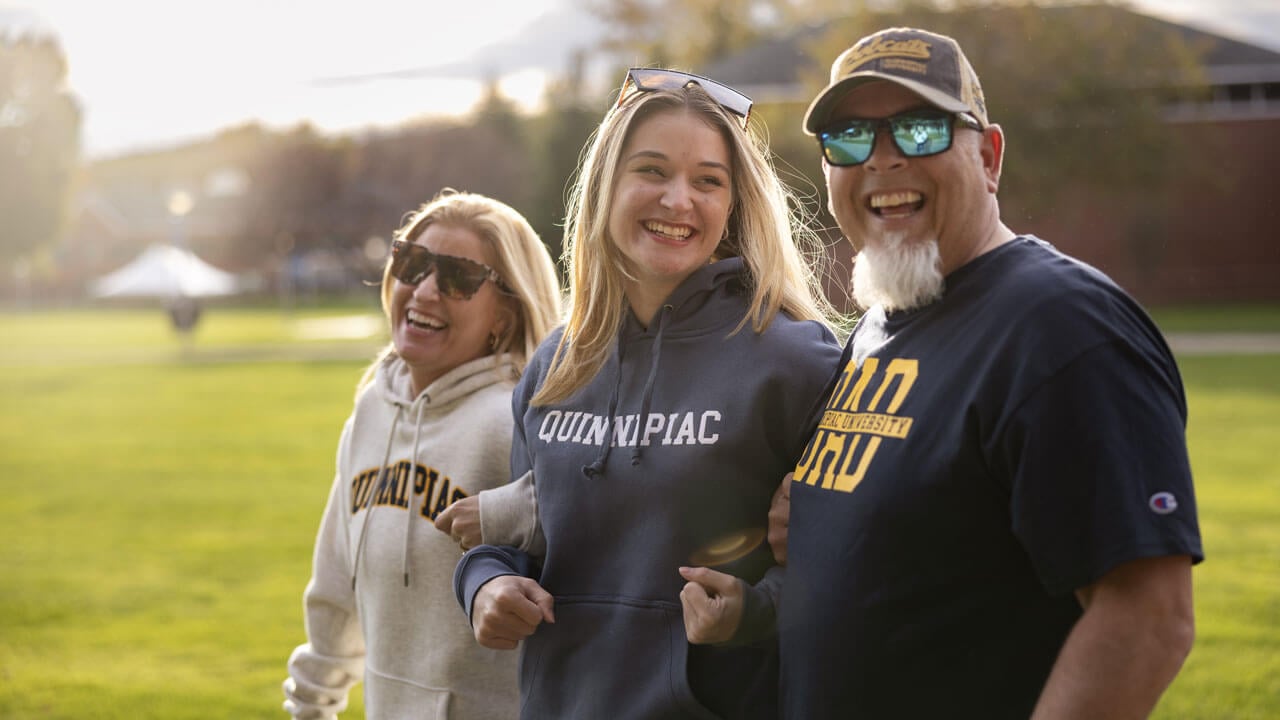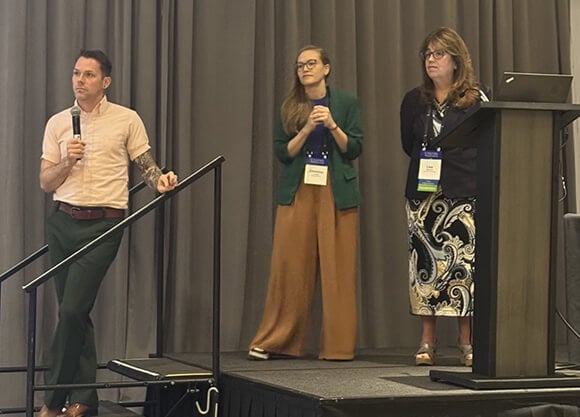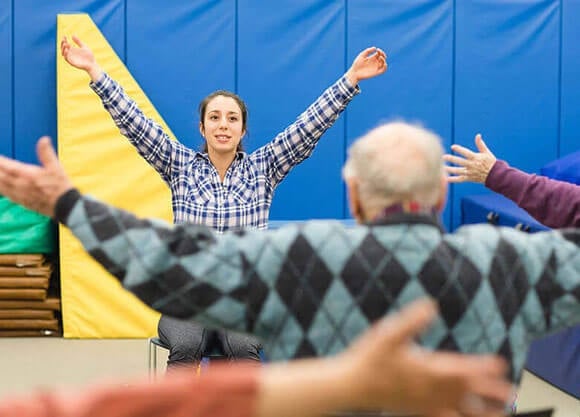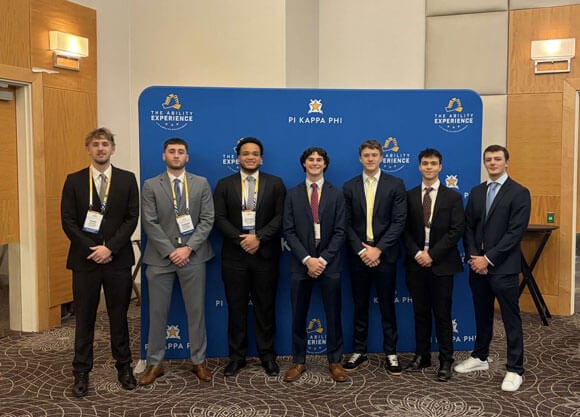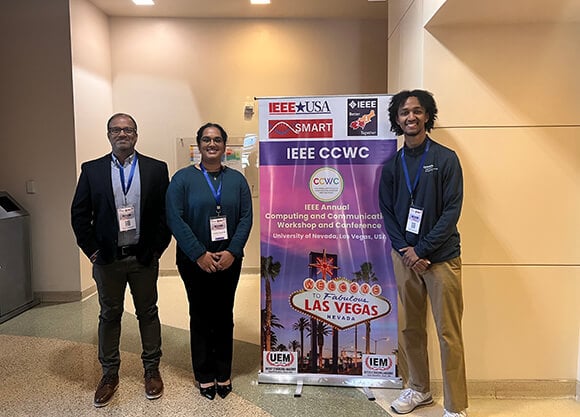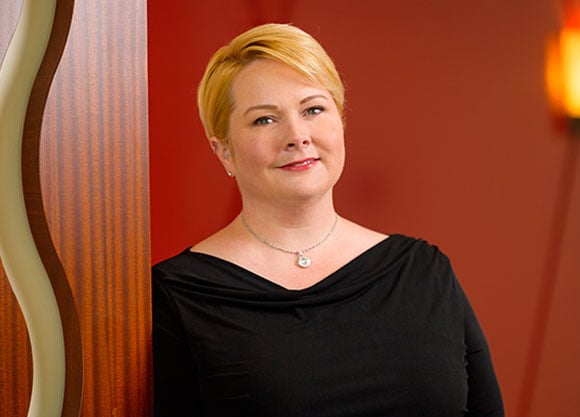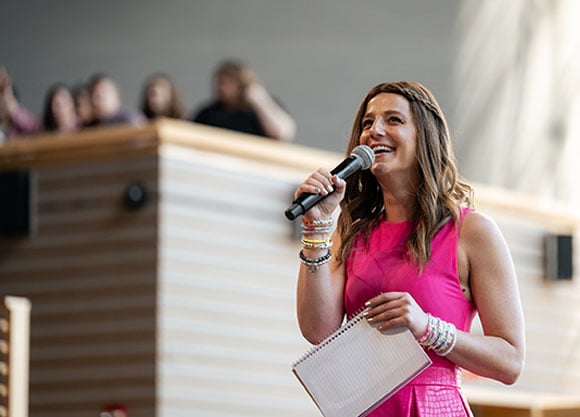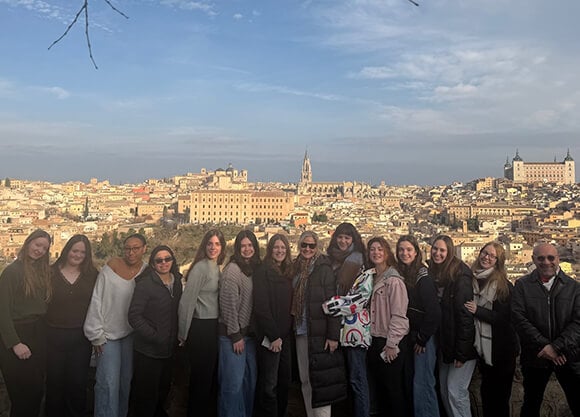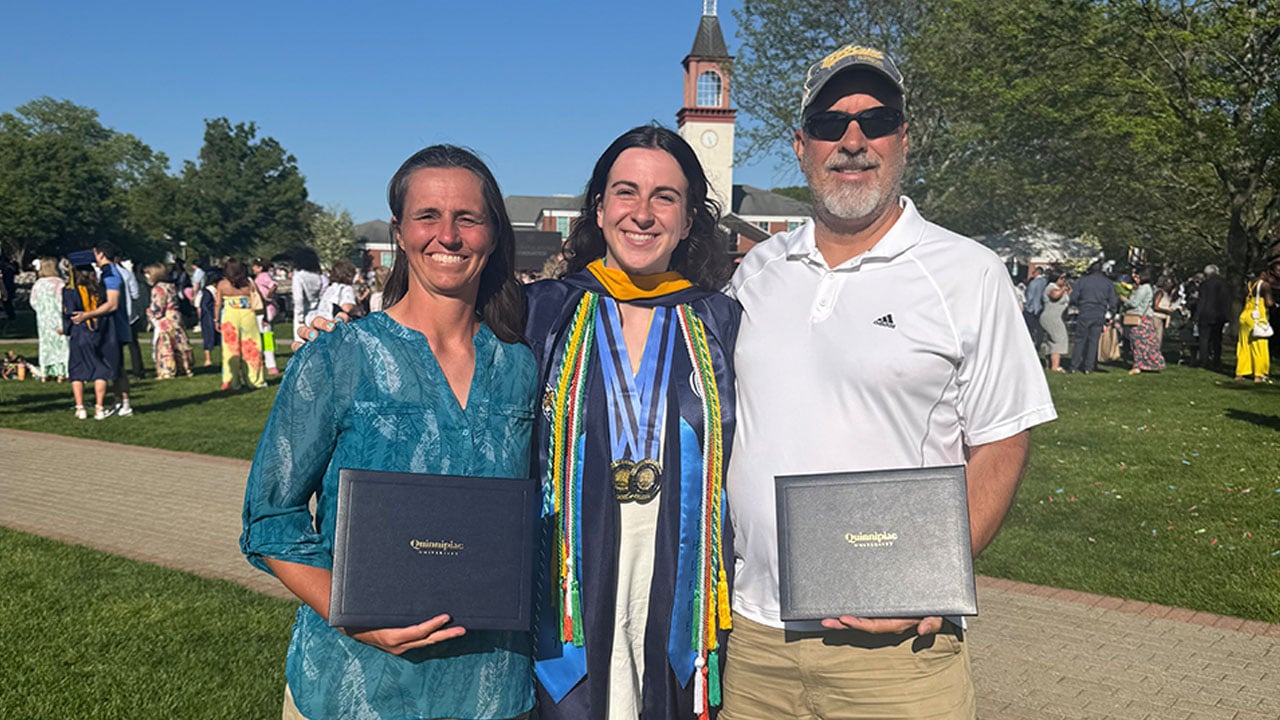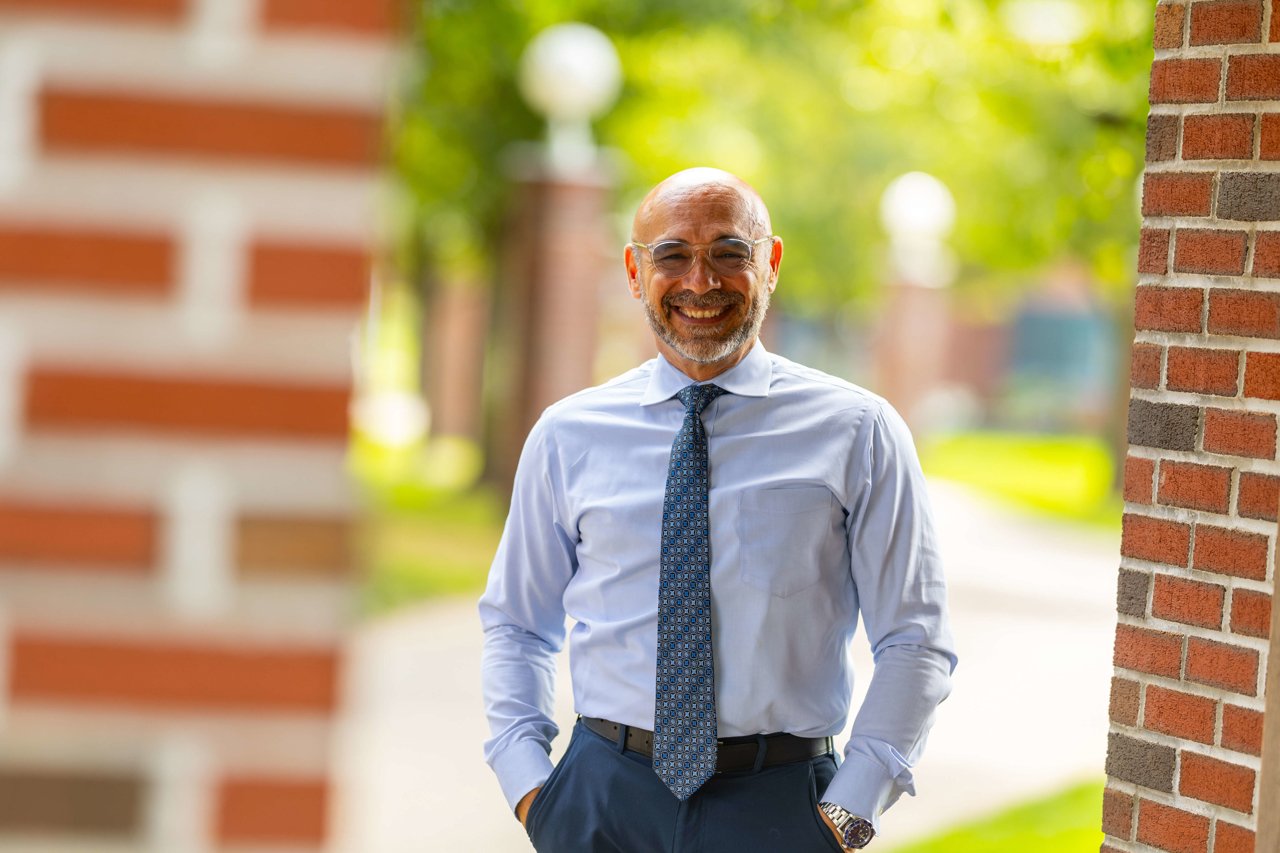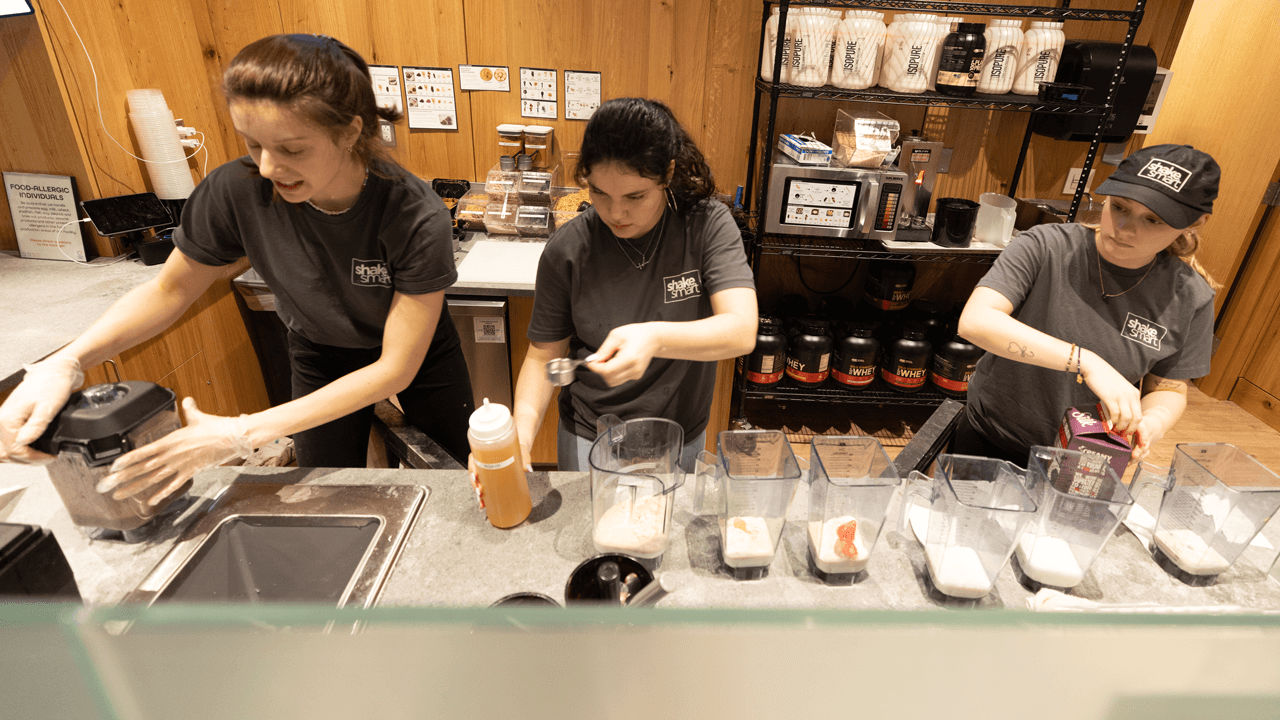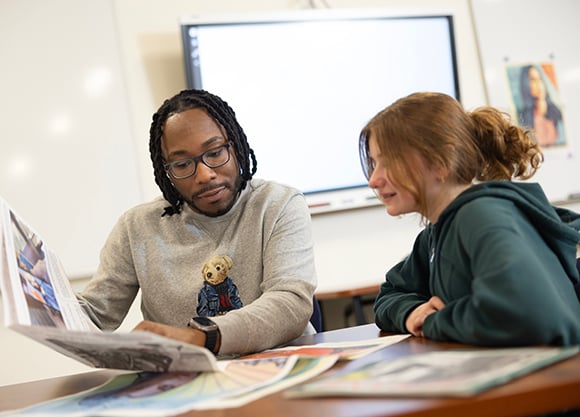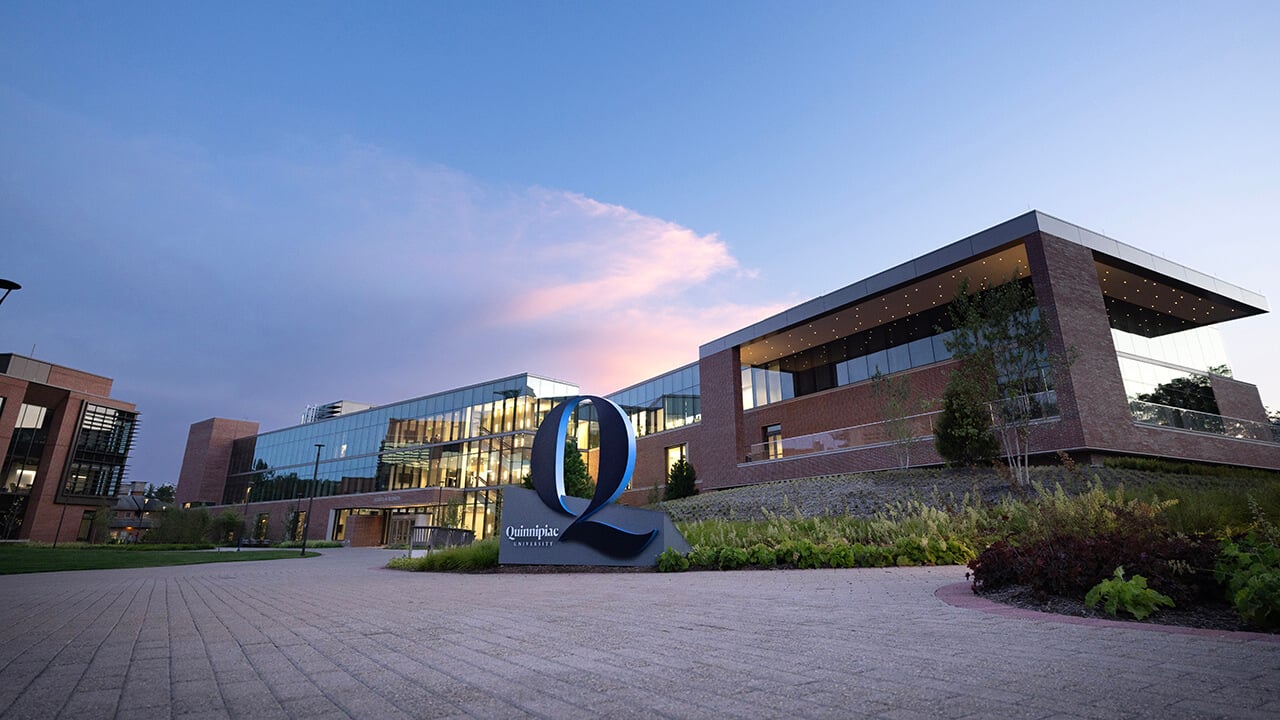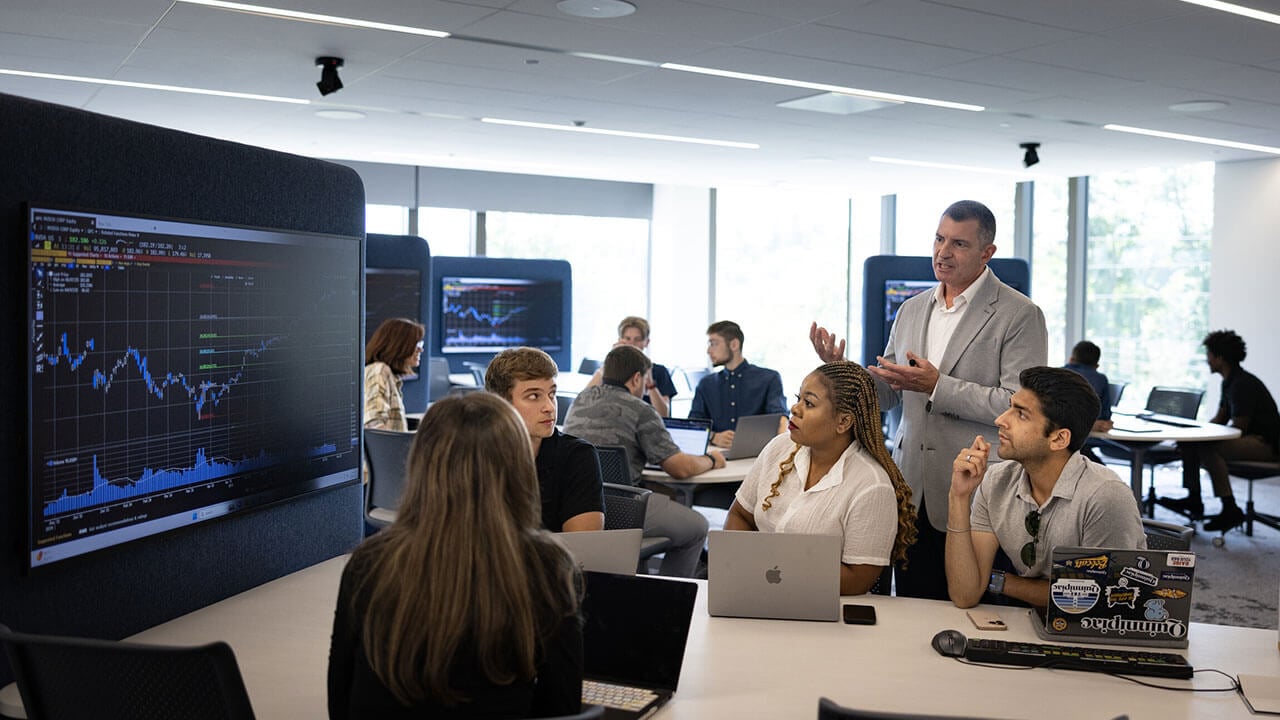
The panel included Sujata Gadkar-Wilcox, associate professor of legal studies, and Kiku Jones, PhD, professor of computer information systems and co-director of the People's United Center for Women & Business, as well as seniors Ana Allen ’22, Ohidiani Imevbore ’22 and Ámbar Pagan ’22.
During her welcome introduction, Provost Debra Liebowitz, PhD, spoke about how sharing narratives can help shed light on the historical trends and ideas formed about issues of gender that are written into our collective understanding of leadership.
Moderated by Gadkar-Wilcox, the panel discussion focused on the shared experiences of women who are leading public figures, leaders on campus and those who lead organizations that focus on community building and empowerment.
Bysiewicz began the conversation by emphasizing that women are still underrepresented in leadership roles, including state legislature, Congress and at all levels of the government. She encouraged the panelists and those in the audience to get more involved in local politics, register to vote and continue supporting each other to bridge the gender gap.
“The topic of ‘women in leadership’ is something I am very passionate about, not just in the corporate world, but also in our Legislature,” said Bysiewicz. “I’ve had the opportunity as the leader of the state Senate to see how it matters when women are involved in legislation like the raising of the minimum wage or paid family medical leave. These are issues that really affect women and families.”
Among her various roles and responsibilities, Bysiewicz serves as chair of the Council on Women and Girls, tasked with providing a coordinated state response to issues that impact the lives of women, girls, their families and the state of Connecticut.
“Leaders are people who help others realize their dreams and aspirations,” said Bysiewicz. “Leadership is important in the sense of helping and mentoring individuals but also in examining the ways that we can achieve greater equality and opportunity for everyone. Is it through childcare? Is it through expanded access to health care?”
Following Bysiewicz’s opening remarks, the panelists each shared their personal narratives and common goals in a thoughtful conversation that spanned generations and cultures while exploring the meaning of leadership both personally and professionally.
“While every individual experience is different, there is a common thread among women in these positions that often includes persistence in making yourself heard, determination to create a pipeline for other women who are becoming leaders, and the ability to overcome the struggles that come along with gaps in representation and understanding of these unique experiences,” said Gadkar-Wilcox. “This panel gives us the opportunity to discuss and share those experiences and discuss strategies for strengthening women's leadership."
For Jones, the path to leadership was not without its obstacles. During her remarks, she shared a moving story of an incident early in her career when she publicly faced prejudice and misogyny following an appointment to a leadership position overseeing a Y2K project for a multimillion-dollar healthcare conglomerate.
“Unfortunately, I carried what was said to me for such a long time, and sometimes, that voice will creep back during certain situations. But I know now that I got that position because I deserved it,” said Jones. “That’s why it’s extremely important to me to reach out to other women and help them find their voice and understand their worth, especially women of color. Because I think sometimes, we just don’t see ourselves.”
For Pagan, a political science major with a law in society minor, her time at Quinnipiac has developed her leadership definition to include inspiring others, listening and mentorship. Allen, a double major in political science and psychology, spoke about her leadership journey and expanded on the ways leadership can be a form of service to others.
Open to the public and co-sponsored by the Albert Schweitzer Institute and the People's United Center for Women & Business, the event concluded with a special reception and the opportunity to meet with Bysiewicz, underscoring the evening’s themes of collaboration and support. Co-sponsors also included the QU Student Government Association, Student Programming Board, QU Democrats, Latino Cultural Society, Corazones Unidos Siempre: Chi Upsilon Sigma National Latin Sorority, QU Culture Initiative and QU BIPOCA Politics.
“It wasn’t until recently that I realized I have a seat at the table and need to advocate for myself. Now, I think about being a role model and creating a path for other girls who look like me and have similar stories and backgrounds. I’m so grateful that I learned this during my time at Quinnipiac,” said Imevbore, majoring in political science and international business. “Now, I attack everything with purpose. I have a duty to those who come after me to be the best version of myself so that they can see me and think, ‘If she can do it, I can do it, too. And I might do it better.’”
In this Article
Stay in the Loop
Quinnipiac Today is your source for what's happening throughout #BobcatNation. Sign up for our weekly email newsletter to be among the first to know about news, events and members of our Bobcat family who are making a positive difference in our world.
Sign Up Now